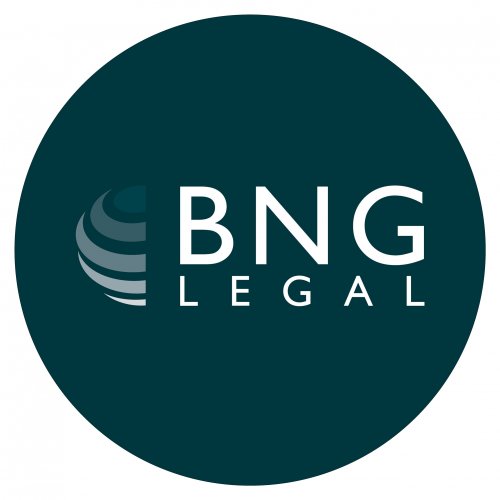Best International Lawyers in Phnom Penh
Share your needs with us, get contacted by law firms.
Free. Takes 2 min.
List of the best lawyers in Phnom Penh, Cambodia
About International Law in Phnom Penh, Cambodia
International law in Phnom Penh, Cambodia refers to the rules and regulations that govern the relationships between countries. It covers a wide range of issues, including trade, diplomacy, human rights, and more. Phnom Penh, as the capital of Cambodia, plays a significant role in international affairs and hosts various international organizations.
Why You May Need a Lawyer
Seeking legal assistance in international law in Phnom Penh may be necessary in various situations, such as:
- Setting up a business with international operations
- Resolving disputes with international partners or clients
- Navigating immigration and visa issues for international travel or residency
- Protecting intellectual property rights across borders
- Complying with international trade agreements and regulations
Local Laws Overview
In Cambodia, several local laws are particularly relevant to international law:
- The Law on Foreigners and International Entities
- The Law on International Cooperation and Legal Assistance in Criminal Matters
- The Law on International Arbitration
- The Law on Investment
- The Law on Intellectual Property
Frequently Asked Questions
1. Can a foreigner own a business in Phnom Penh?
Yes, foreigners can own and operate businesses in Phnom Penh. However, certain restrictions and regulations apply, and it is advisable to consult with a lawyer to ensure compliance with local laws.
2. What are the visa requirements for traveling to Cambodia?
The visa requirements for traveling to Cambodia depend on the purpose and duration of your visit. It is essential to research and understand the specific visa type, application process, and any supporting documents required. Consulting a lawyer can provide guidance tailored to your situation.
3. How can I protect my intellectual property in Phnom Penh?
To protect your intellectual property in Phnom Penh, you can register your patents, trademarks, and copyrights with the Department of Intellectual Property. Working with a lawyer experienced in intellectual property law can help ensure proper registration and enforcement of your rights.
4. What legal options are available for resolving international disputes?
International disputes can be resolved through negotiation, mediation, arbitration, or litigation. The appropriate method depends on the specific circumstances of the dispute. A lawyer specializing in international law can guide you through the available options and help determine the most suitable approach.
5. How can I ensure compliance with international trade regulations in Phnom Penh?
To ensure compliance with international trade regulations in Phnom Penh, it is crucial to stay informed about relevant laws, treaties, and agreements. Seeking legal advice from experts in international trade law can help you navigate the complex landscape and ensure compliance with all requirements.
Additional Resources
For further assistance and information regarding international law in Phnom Penh, the following resources can be helpful:
- Ministry of Foreign Affairs and International Cooperation
- Phnom Penh Bar Association
- International Chamber of Commerce Cambodia
- Embassies and consulates of relevant countries
Next Steps
If you require legal assistance in international law in Phnom Penh, Cambodia, here are the suggested next steps:
- Identify the specific area of international law relevant to your situation.
- Research and shortlist lawyers or law firms experienced in that particular area.
- Schedule consultations to discuss your case and assess the expertise of potential lawyers.
- Select a lawyer who best meets your needs and budget.
- Initiate the engagement process, providing all necessary details and documents to your chosen lawyer.
Lawzana helps you find the best lawyers and law firms in Phnom Penh through a curated and pre-screened list of qualified legal professionals. Our platform offers rankings and detailed profiles of attorneys and law firms, allowing you to compare based on practice areas, including International, experience, and client feedback.
Each profile includes a description of the firm's areas of practice, client reviews, team members and partners, year of establishment, spoken languages, office locations, contact information, social media presence, and any published articles or resources. Most firms on our platform speak English and are experienced in both local and international legal matters.
Get a quote from top-rated law firms in Phnom Penh, Cambodia — quickly, securely, and without unnecessary hassle.
Disclaimer:
The information provided on this page is for general informational purposes only and does not constitute legal advice. While we strive to ensure the accuracy and relevance of the content, legal information may change over time, and interpretations of the law can vary. You should always consult with a qualified legal professional for advice specific to your situation.
We disclaim all liability for actions taken or not taken based on the content of this page. If you believe any information is incorrect or outdated, please contact us, and we will review and update it where appropriate.









